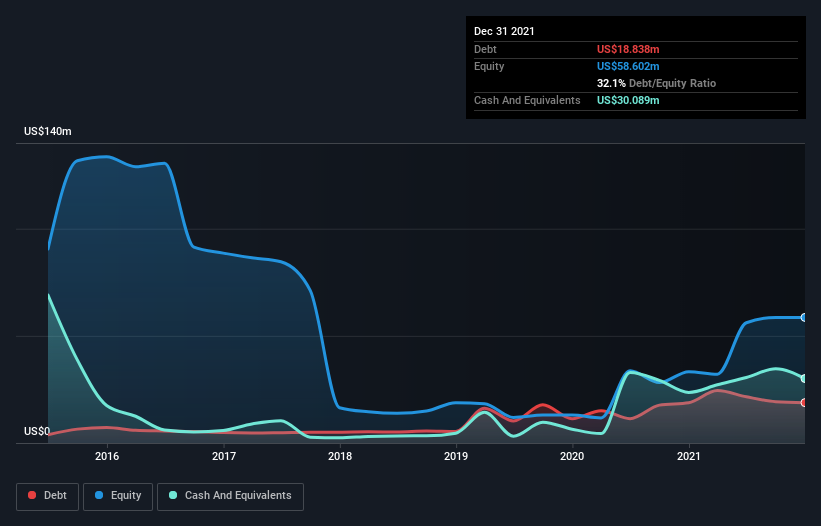Is Quipt Home Medical (CVE:QIPT) Using Too Much Debt?
Warren Buffett famously said, 'Volatility is far from synonymous with risk.' So it seems the smart money knows that debt - which is usually involved in bankruptcies - is a very important factor, when you assess how risky a company is. Importantly, Quipt Home Medical Corp. (CVE:QIPT) does carry debt. But the more important question is: how much risk is that debt creating?
Why Does Debt Bring Risk?
Debt assists a business until the business has trouble paying it off, either with new capital or with free cash flow. In the worst case scenario, a company can go bankrupt if it cannot pay its creditors. While that is not too common, we often do see indebted companies permanently diluting shareholders because lenders force them to raise capital at a distressed price. Having said that, the most common situation is where a company manages its debt reasonably well - and to its own advantage. When we examine debt levels, we first consider both cash and debt levels, together.
View our latest analysis for Quipt Home Medical
What Is Quipt Home Medical's Debt?
As you can see below, Quipt Home Medical had US$18.8m of debt, at December 2021, which is about the same as the year before. You can click the chart for greater detail. However, it does have US$30.1m in cash offsetting this, leading to net cash of US$11.3m.
How Strong Is Quipt Home Medical's Balance Sheet?
According to the last reported balance sheet, Quipt Home Medical had liabilities of US$30.9m due within 12 months, and liabilities of US$17.9m due beyond 12 months. Offsetting this, it had US$30.1m in cash and US$10.5m in receivables that were due within 12 months. So its liabilities total US$8.23m more than the combination of its cash and short-term receivables.
Given Quipt Home Medical has a market capitalization of US$150.7m, it's hard to believe these liabilities pose much threat. However, we do think it is worth keeping an eye on its balance sheet strength, as it may change over time. Despite its noteworthy liabilities, Quipt Home Medical boasts net cash, so it's fair to say it does not have a heavy debt load! When analysing debt levels, the balance sheet is the obvious place to start. But it is future earnings, more than anything, that will determine Quipt Home Medical's ability to maintain a healthy balance sheet going forward. So if you're focused on the future you can check out this free report showing analyst profit forecasts.
In the last year Quipt Home Medical wasn't profitable at an EBIT level, but managed to grow its revenue by 38%, to US$109m. Shareholders probably have their fingers crossed that it can grow its way to profits.
So How Risky Is Quipt Home Medical?
Although Quipt Home Medical had an earnings before interest and tax (EBIT) loss over the last twelve months, it generated positive free cash flow of US$15m. So taking that on face value, and considering the net cash situation, we don't think that the stock is too risky in the near term. One positive is that Quipt Home Medical is growing revenue apace, which makes it easier to sell a growth story and raise capital if need be. But we still think it's somewhat risky. There's no doubt that we learn most about debt from the balance sheet. However, not all investment risk resides within the balance sheet - far from it. These risks can be hard to spot. Every company has them, and we've spotted 2 warning signs for Quipt Home Medical you should know about.
When all is said and done, sometimes its easier to focus on companies that don't even need debt. Readers can access a list of growth stocks with zero net debt 100% free, right now.
Have feedback on this article? Concerned about the content? Get in touch with us directly. Alternatively, email editorial-team (at) simplywallst.com.
This article by Simply Wall St is general in nature. We provide commentary based on historical data and analyst forecasts only using an unbiased methodology and our articles are not intended to be financial advice. It does not constitute a recommendation to buy or sell any stock, and does not take account of your objectives, or your financial situation. We aim to bring you long-term focused analysis driven by fundamental data. Note that our analysis may not factor in the latest price-sensitive company announcements or qualitative material. Simply Wall St has no position in any stocks mentioned.

